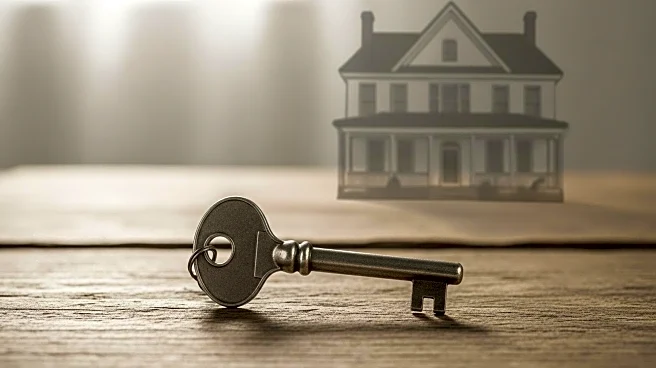What's Happening?
The Icelandic Heritage Agency has intervened to stop the demolition of the oldest house on Laugavegur, Reykjavik, citing the need for explicit approval under heritage protection laws. The house, built in 1848, was initially a prestigious residence and later converted into a shop, retaining its original roof timbers and basement structures. Despite city officials approving plans for partial demolition and reconstruction, the agency insists that it was not consulted on the final proposal. Pétur H. Ármannsson, head of building protection at the agency, expressed surprise at the city's decision, emphasizing that all changes to protected buildings require approval from the agency. The agency is now demanding answers from city officials and has called for construction work to be suspended until the process is reviewed.
Why It's Important?
This intervention by the Icelandic Heritage Agency underscores the importance of preserving historical architecture and the legal frameworks that protect such structures. The decision to halt the demolition reflects broader concerns about maintaining cultural heritage amidst urban development pressures. The outcome of this situation could set a precedent for how heritage laws are enforced in Iceland, potentially influencing future urban planning and conservation efforts. Stakeholders such as preservationists, local businesses, and city planners are directly affected, as the resolution of this issue will impact both the preservation of cultural landmarks and the economic development of the area.
What's Next?
The Icelandic Heritage Agency is pressing city officials for a detailed explanation of the approval process and is advocating for a suspension of construction activities until a thorough review is conducted. The agency's demand for answers may lead to a reassessment of the city's planning and approval procedures, potentially involving legal scrutiny or public debate. The resolution of this issue will likely involve negotiations between the agency, city officials, and possibly other stakeholders, aiming to balance heritage preservation with urban development needs.
Beyond the Headlines
The situation highlights the ethical and cultural dimensions of urban development, where the preservation of historical sites must be weighed against modernization and economic growth. It raises questions about the transparency and accountability of city planning processes, and the role of heritage agencies in safeguarding cultural landmarks. Long-term, this could influence public policy regarding heritage conservation and urban development, encouraging more inclusive and consultative approaches.









